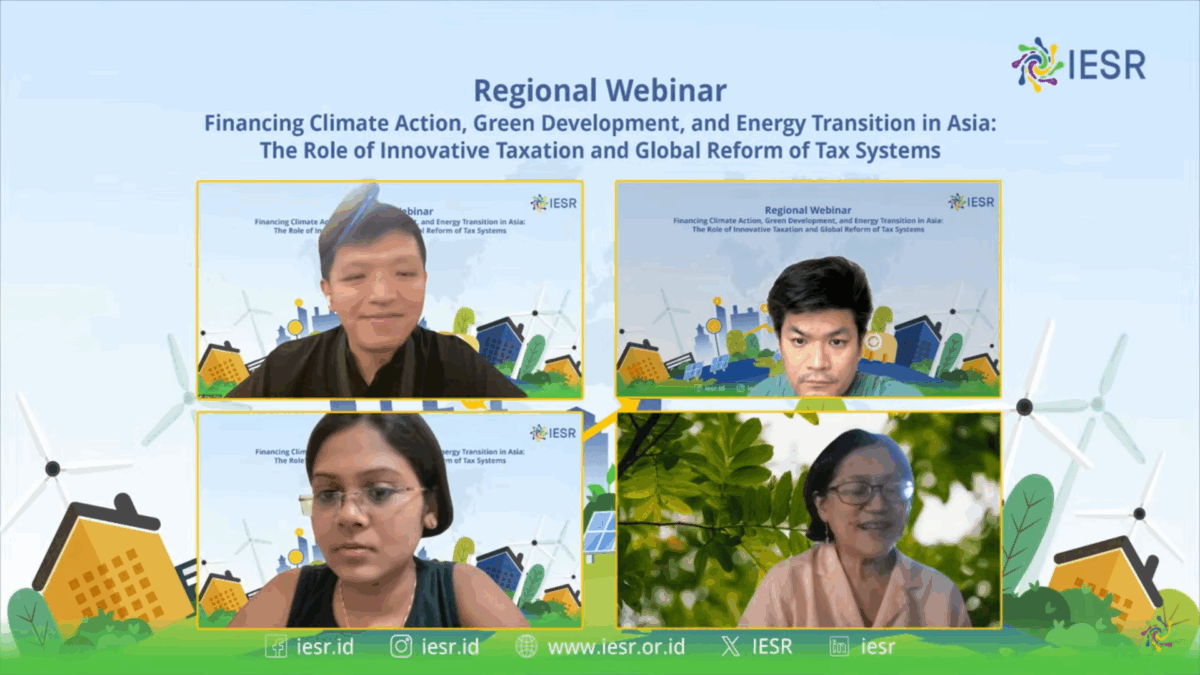Jakarta, 26 August 2025 – Global South countries currently need trillions of dollars to finance climate resilience projects and a just transition. The new UN Tax Convention is an opportunity to seek innovative financing through multinational collaborations, ensuring that wealthy individuals pay higher taxes fairly and aligning tax architectures with a country’s climate targets.
Arief Rosadi, Climate and Energy Diplomacy Manager at the Institute for Essential Services Reform (IESR), during the regional webinar “Financing Climate Action & Green Development in Asia Through Innovative Taxation & Global Tax Reform,” explained that the energy transition encompasses multiple sectors, including finance. Given the significant investment needs for the energy transition, IESR is pushing for a reformation in tax and financial policies to increase the country’s fiscal capacity in financing energy transition and climate action.
“We hope Asian countries will seize this global momentum to build financing infrastructure and opportunities, so that Asian countries receive not only green but also fair and equitable financing,” said Arief.
Selomi Garnaik, Climate and Energy Campaigner for Greenpeace India, emphasized that Asian countries are most impacted by the climate crisis, despite their relatively small contribution to emissions.
“However, governments in the Asian region still support policies that favor the use of fossil fuels. This sends a mixed signal to businesses and financial institutions about the government’s seriousness in transitioning to renewable energy,” said Selomi.
Jeannie Manipon, Senior Program Manager for Development Partners at APMDD, explained that it is important for civil society and community elements to continue pressuring governments and policymakers to reform taxes and allocate funding for climate action.
“We have seen that the current climate policy framework (financing) does not support progressive climate action. We have the option to press for tax system reform to achieve more ambitious climate action,” said Jeannie.
Jeannie added that this effort is a long-term effort that must combine government engagement, civil society action, and mainstreaming this topic in the mass media.
Aoi Hariuchi, Senior Advocacy Officer at JANIC, stated that imposing higher taxes on the super-rich (billionaires) would generate US$200-250 billion annually, which could then be used to support global climate action.
“However, the Japanese government, through the Ministry of Foreign Affairs, has stated that it is currently more focused on ensuring transparency, neutrality, and fairness in the Japanese tax system,” he explained.

